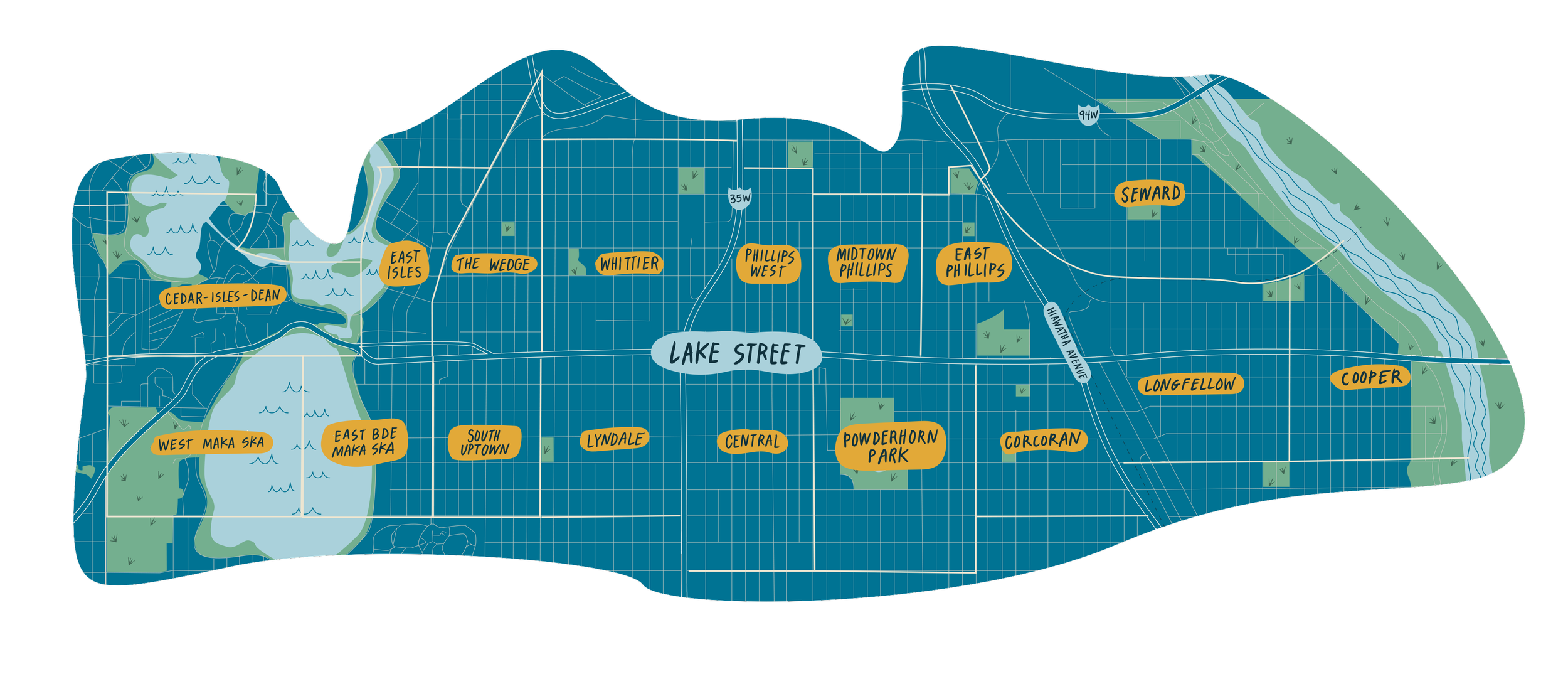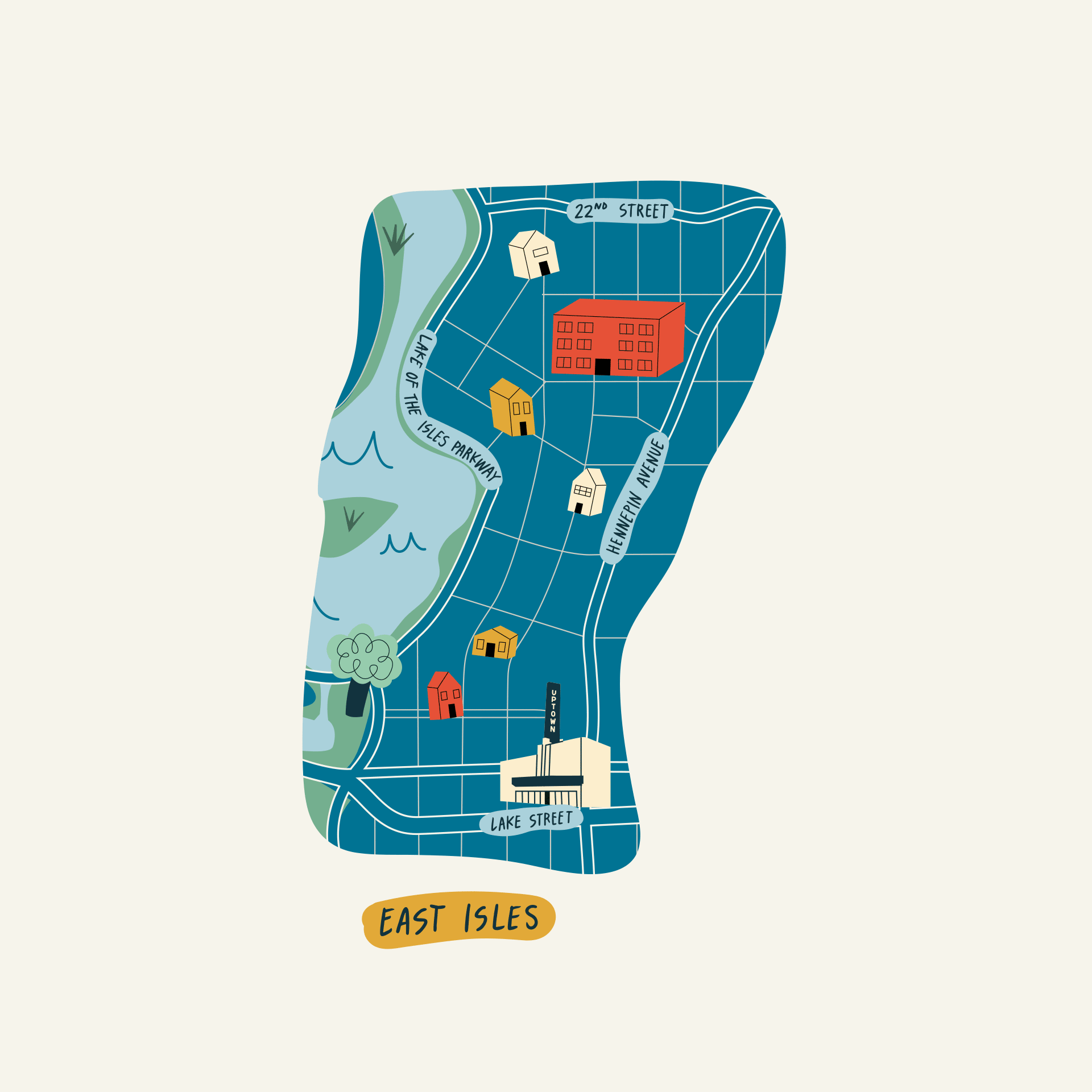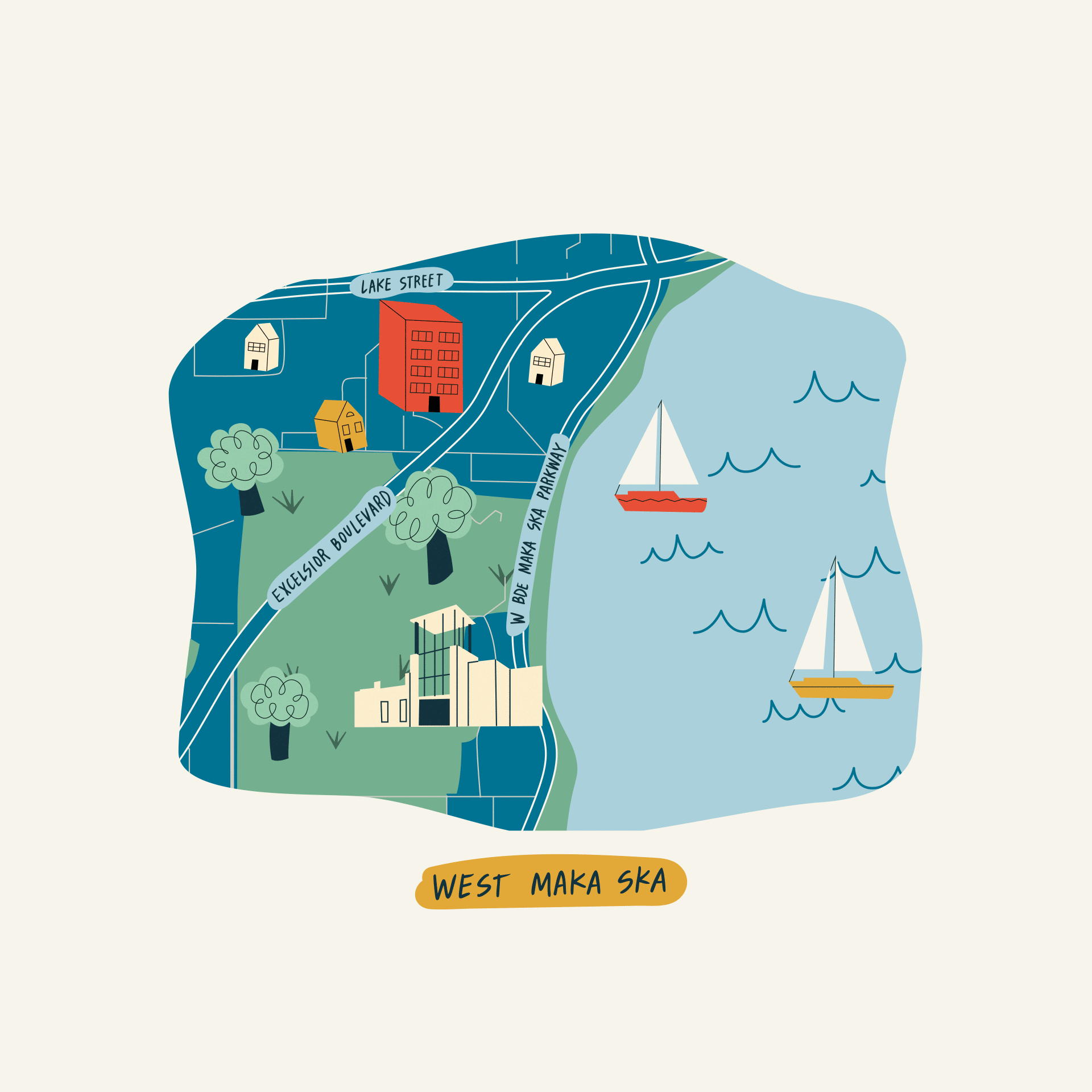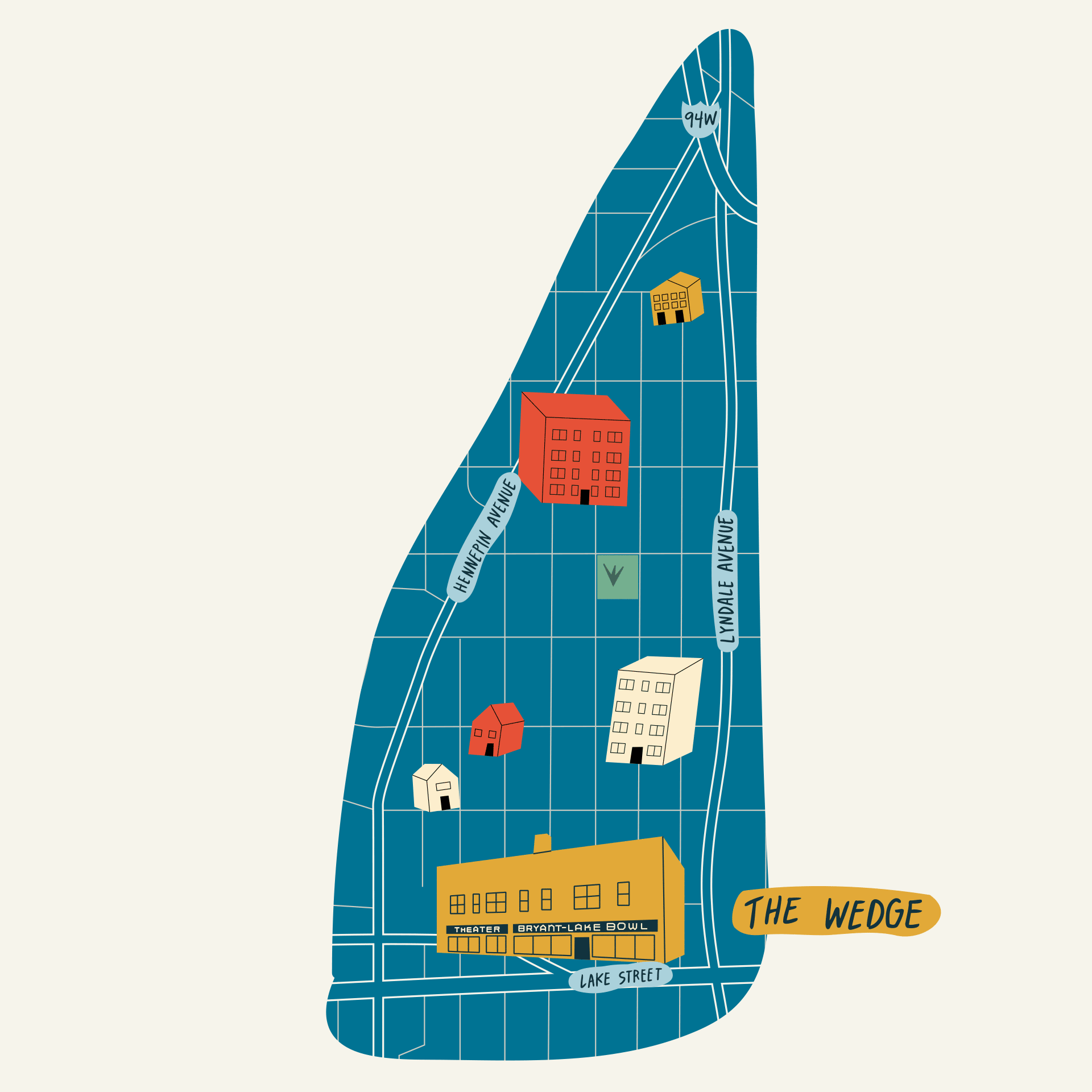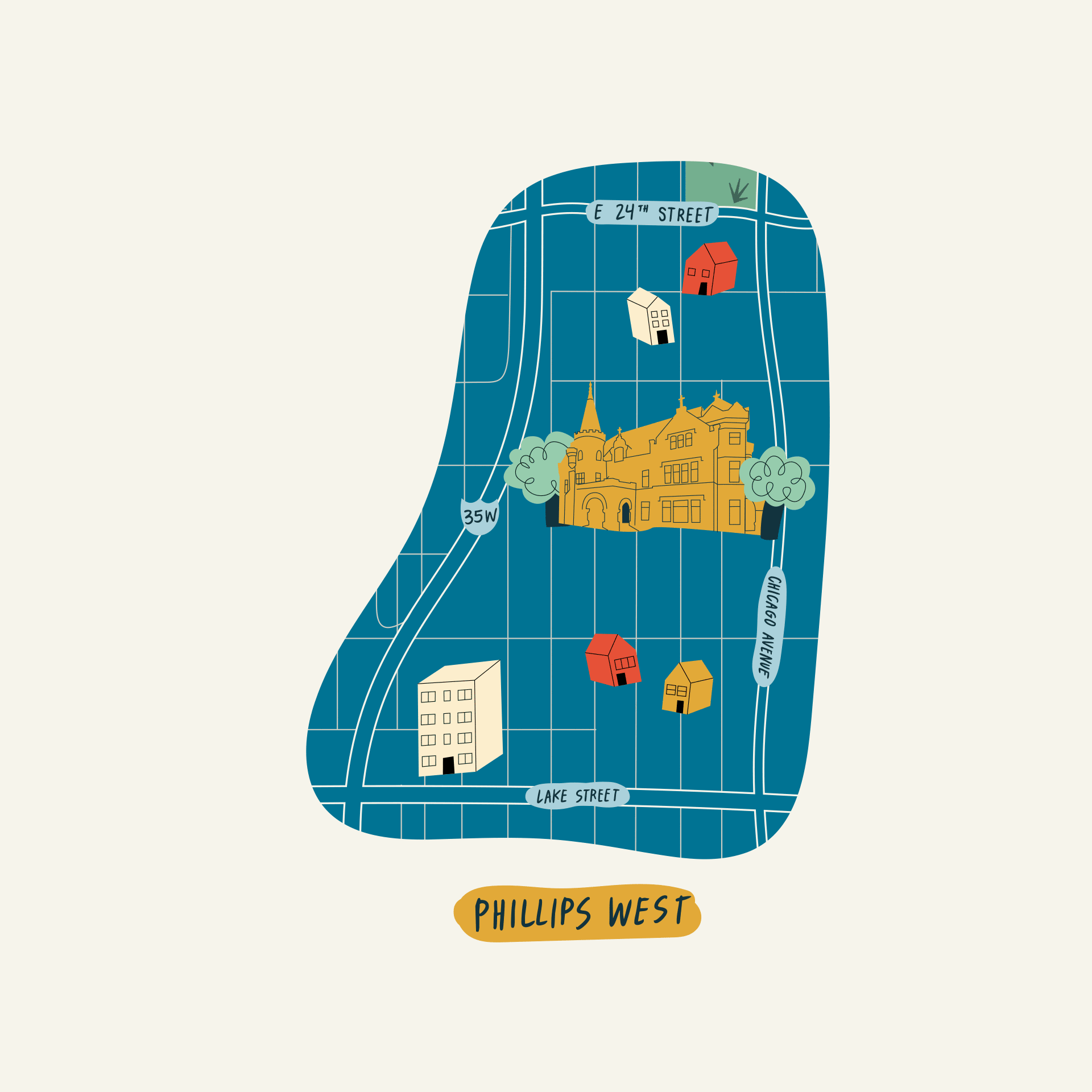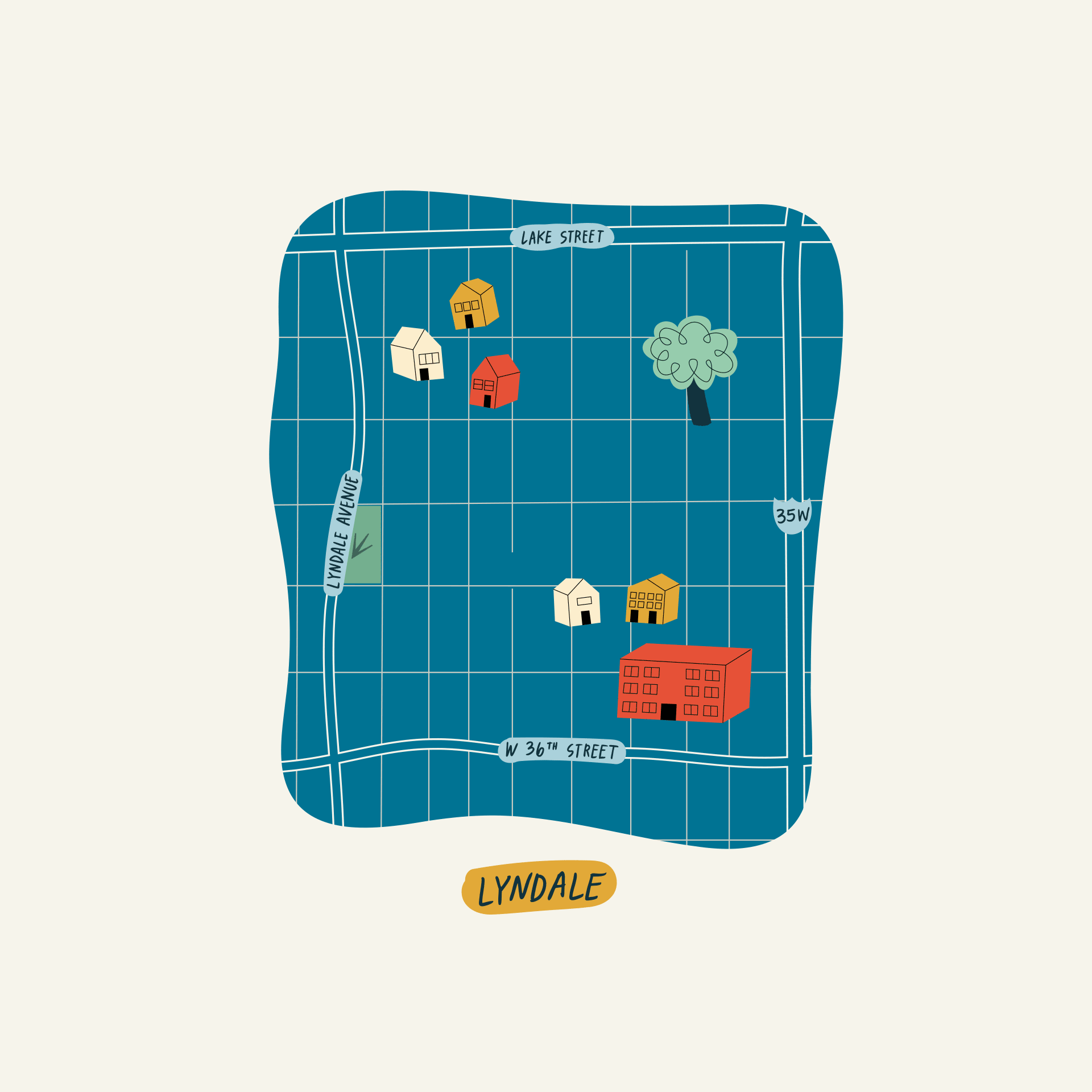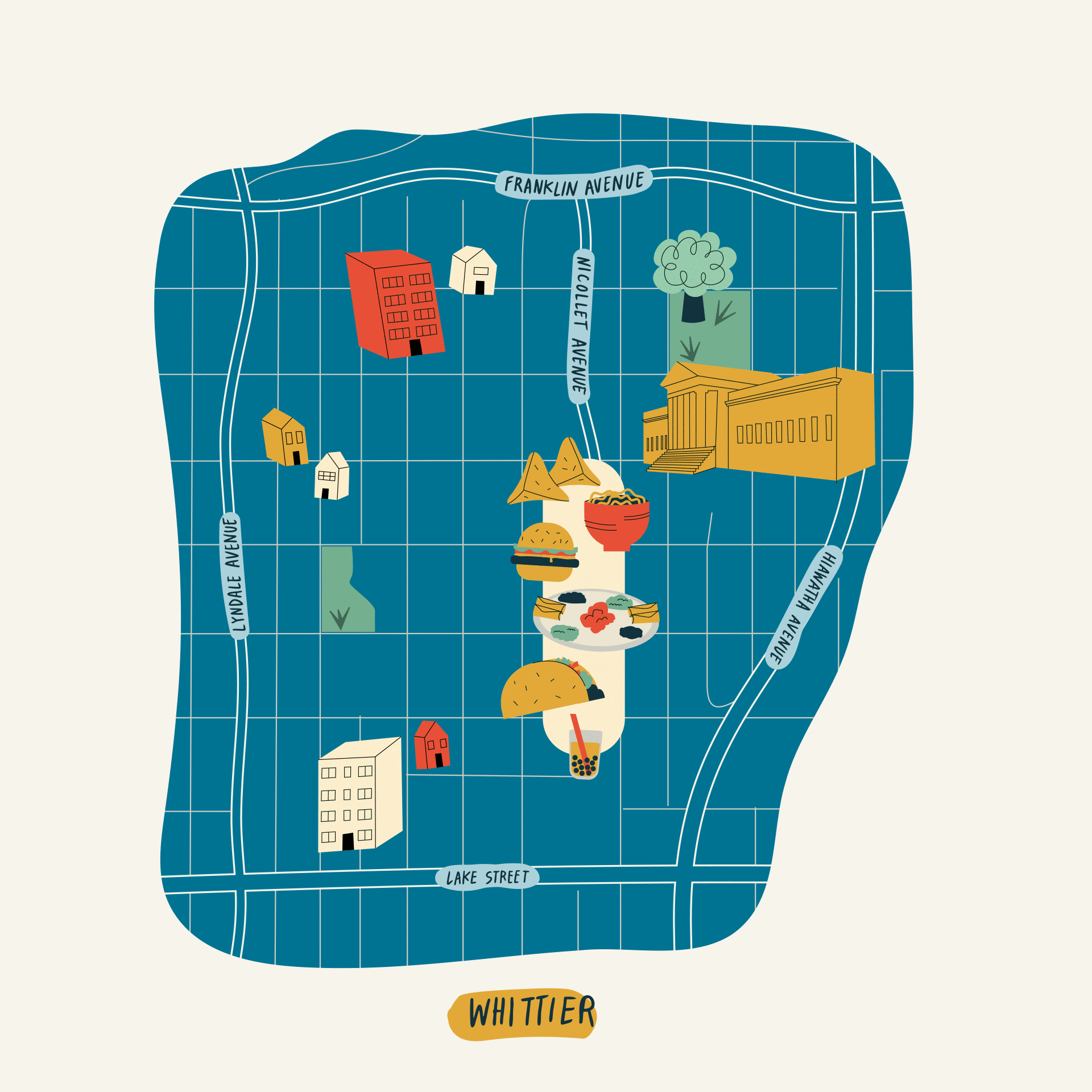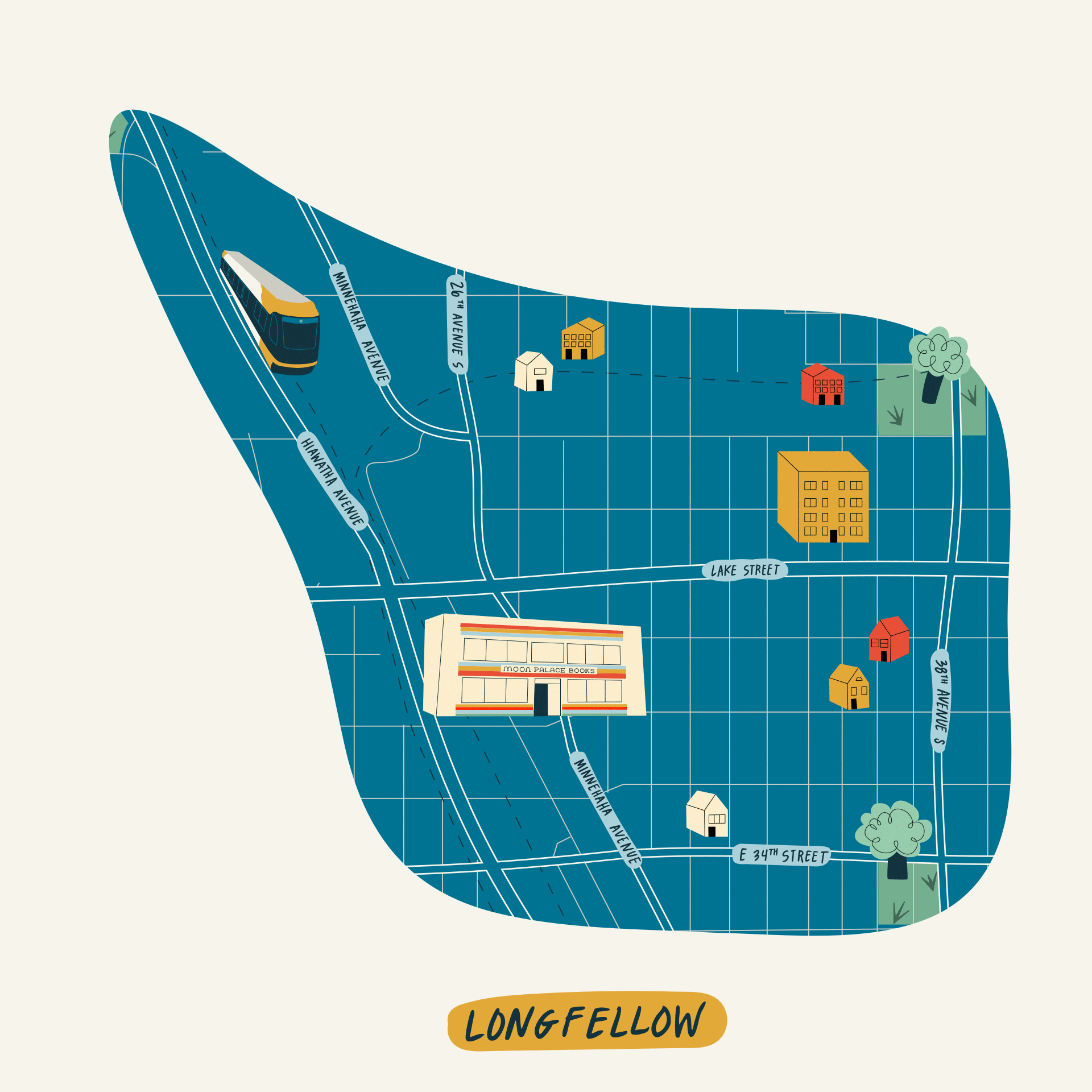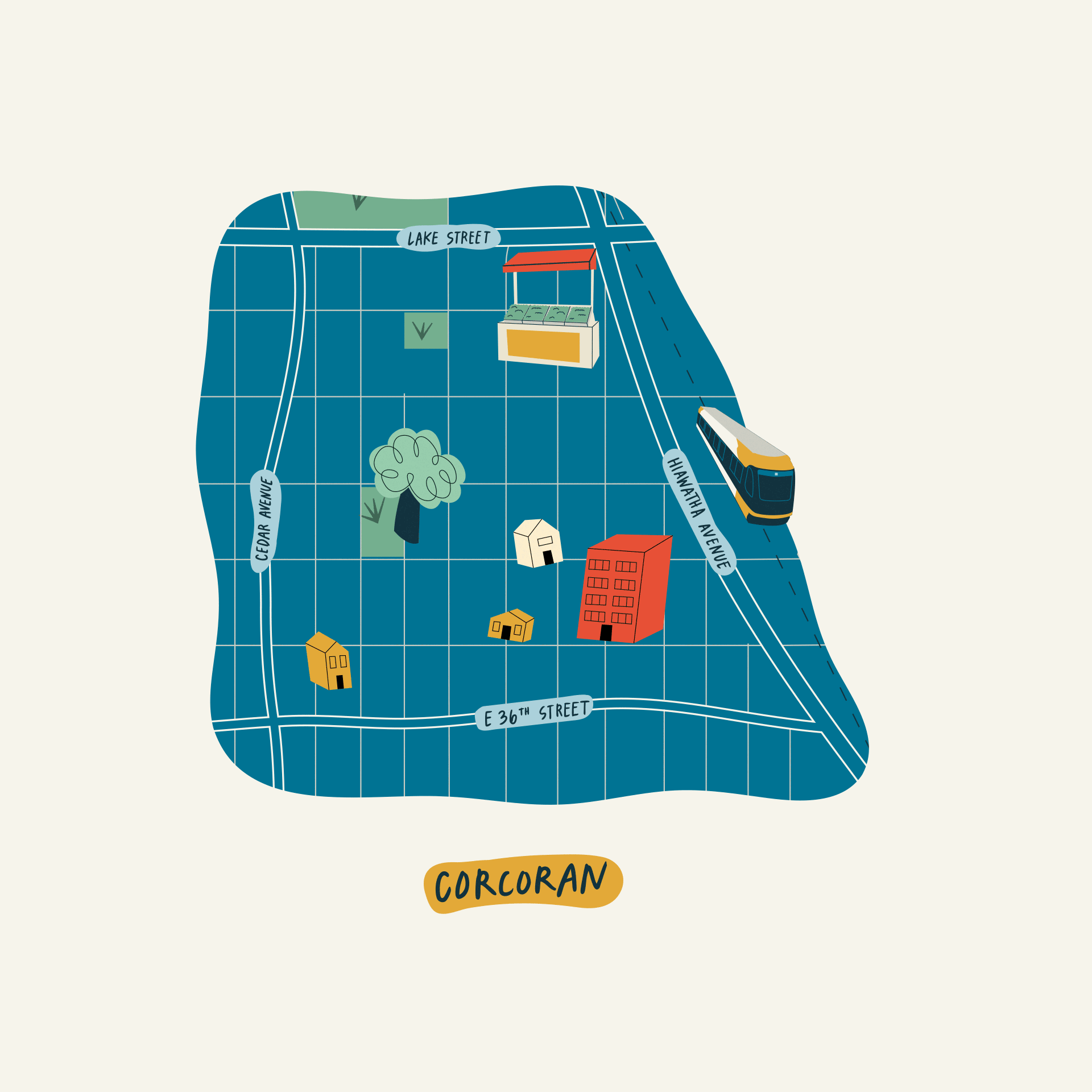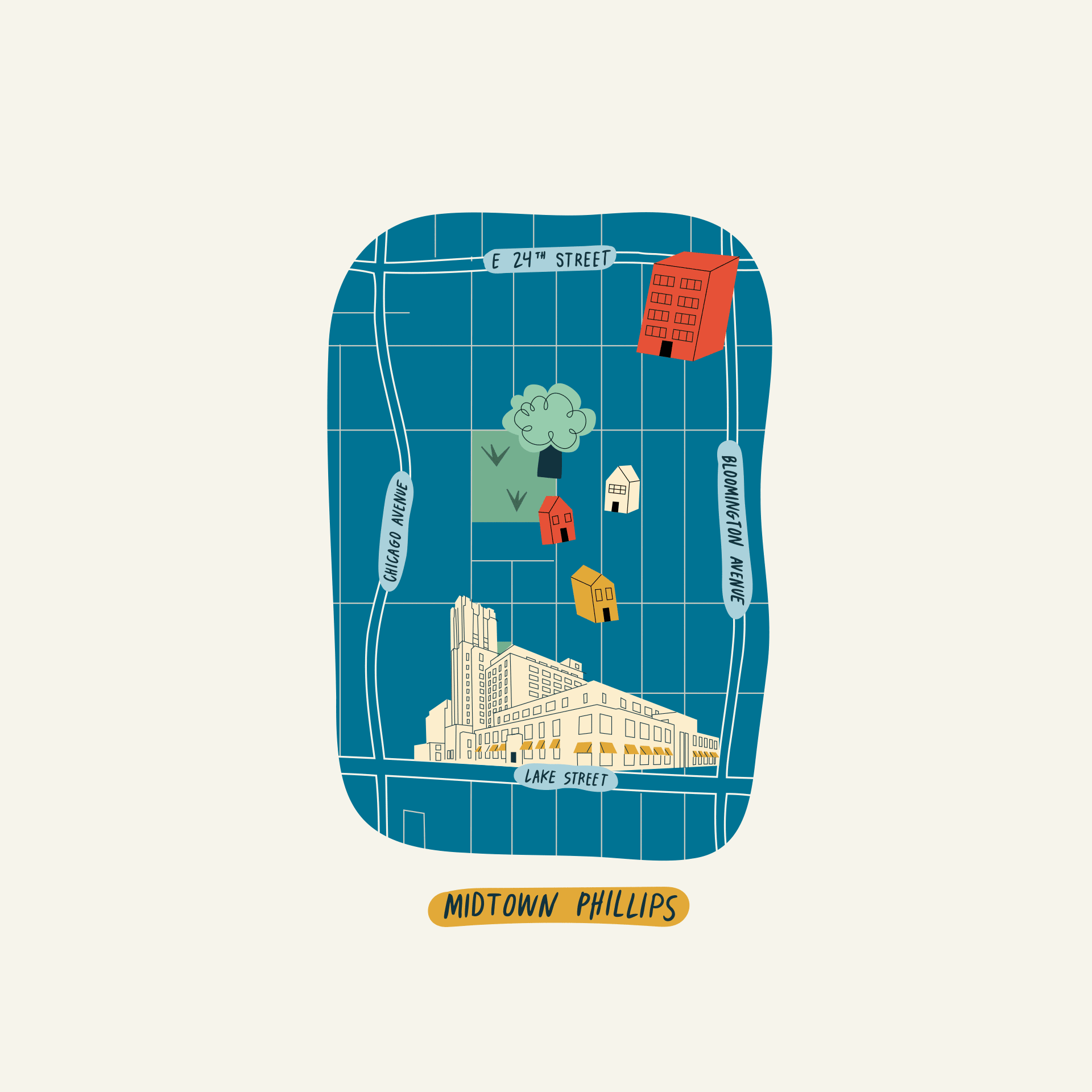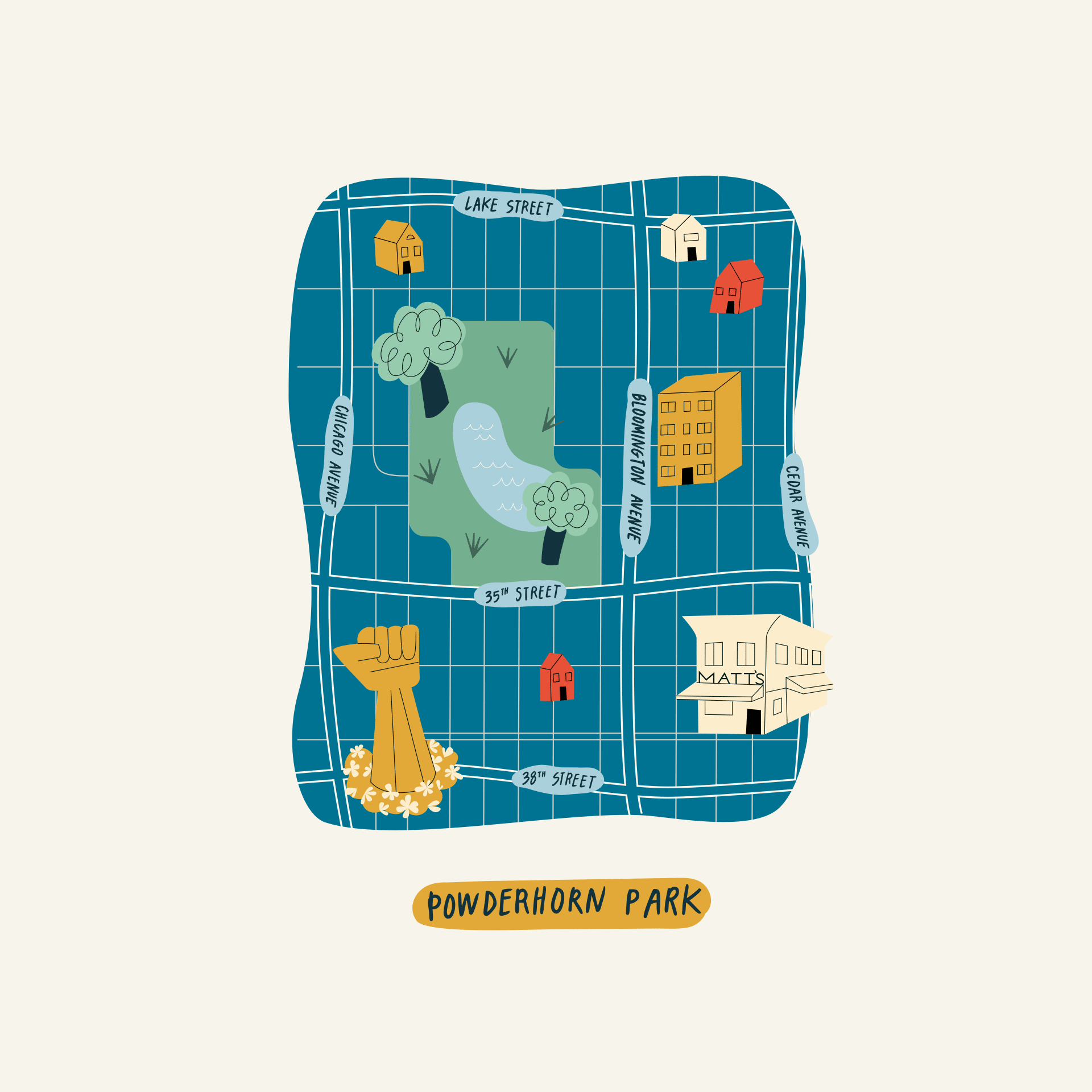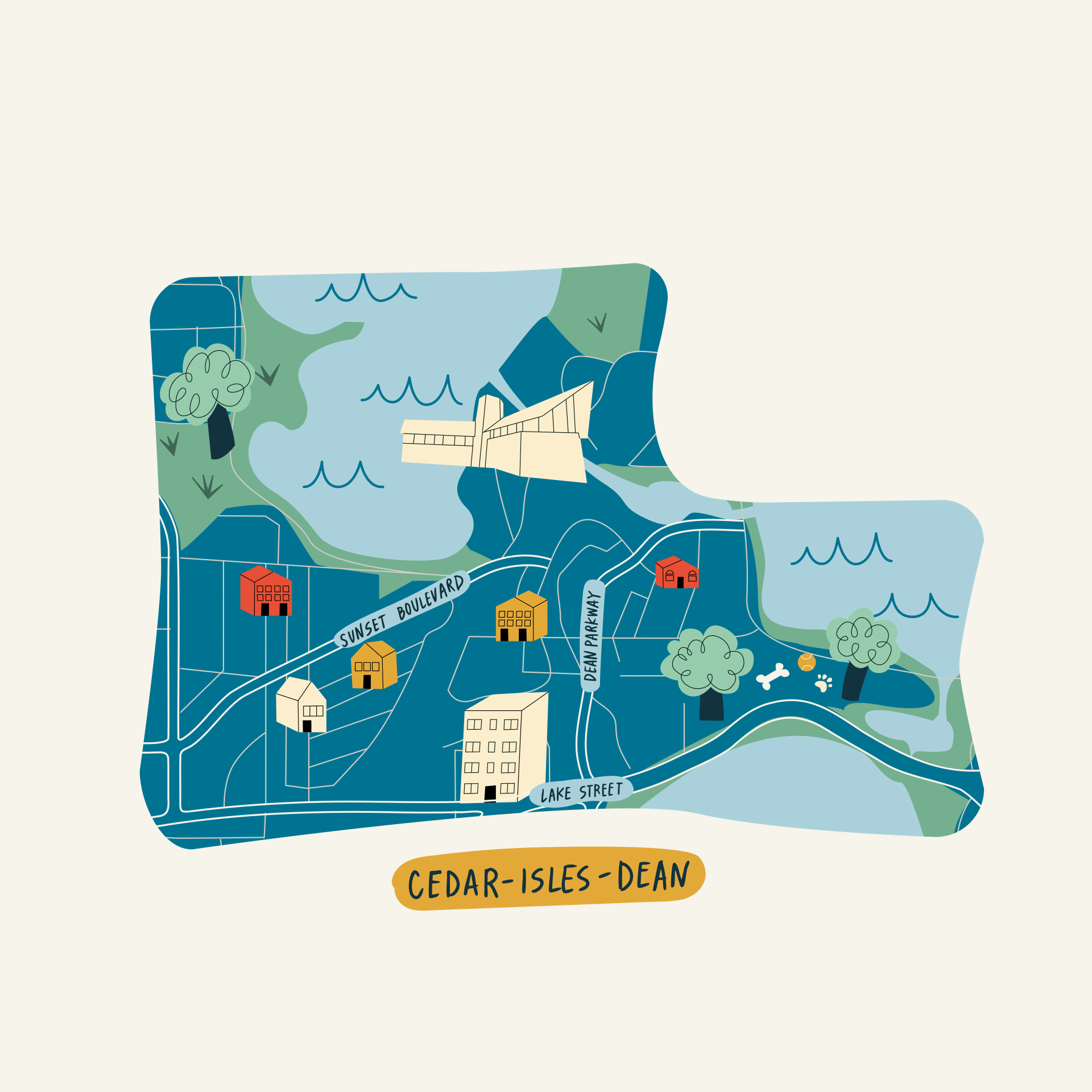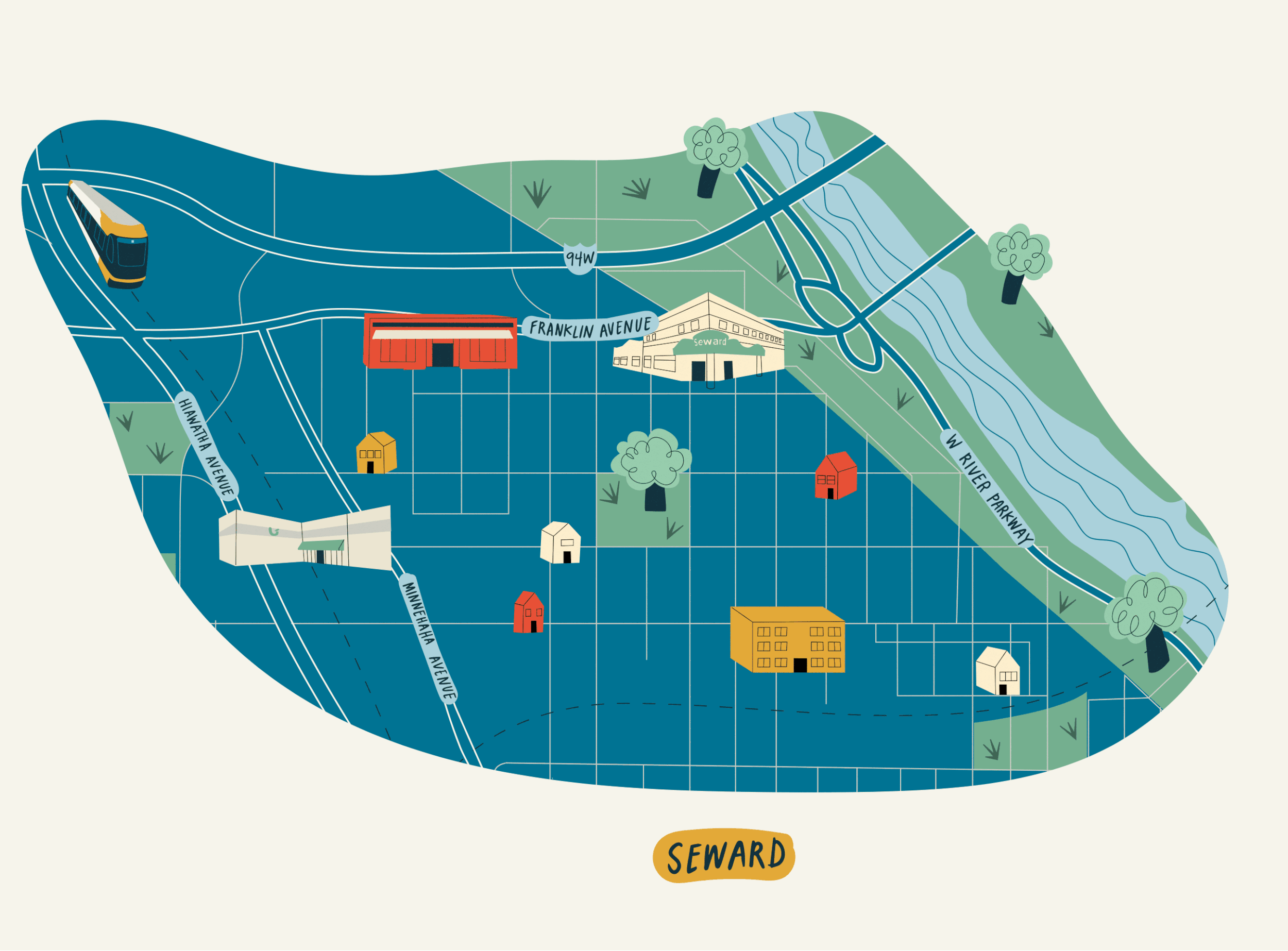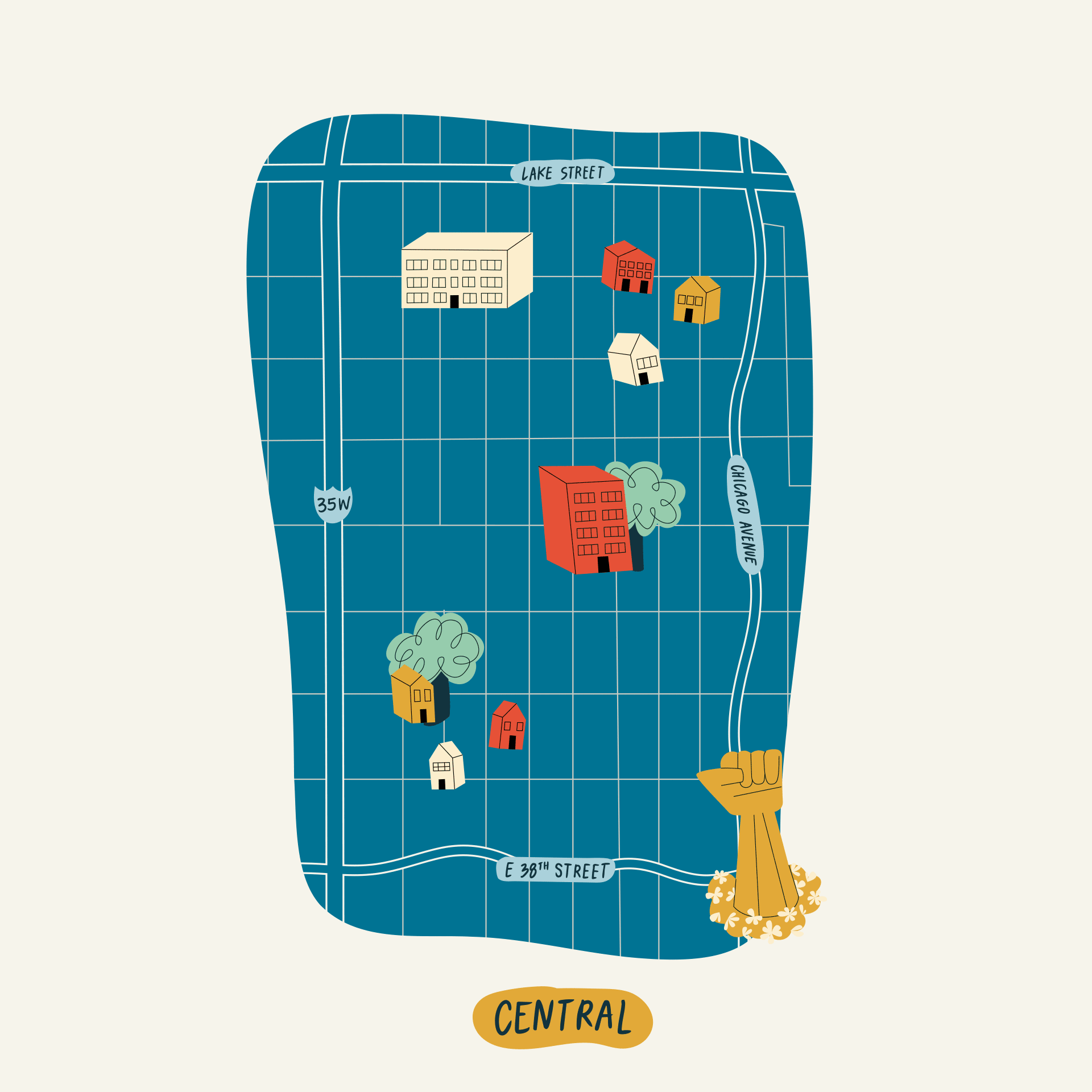Neighborhoods
Along a five mile stretch, Lake Street has so much to offer. From spending a day exploring local stores in Longfellow to a jog around Bde Maka Ska in Uptown, there’s something for everyone.
East Isles
Spanning the winding, eastern edge of Lake of the Isles—one of the northernmost links in the city’s chain of lakes—East Isles is a lush, green neighborhood primarily known for its tree-lined streets, many historic homes, and densely situated restaurants and shops. Many residents describe East Isles as the quintessential Minneapolis community.
East Bde Maka Ska
Named after Bde Maka Ska—a Dakota name meaning White Earth Lake or White Bank Lake—the East Bde Maka Ska neighborhood was once home to the Dakota agricultural village known as Ḣeyate Otuŋwe, founded by Dakota leader Mahpiya Wicasta (Cloud Man). The neighborhood continues to carry forward a practice of return and renewal, honoring the land and water to which it owes its name.
West Bde Maka Ska
West Bde Maka Ska is often said to contain the best elements of both a small town and a big city. Through the Lake Street corridor, residents of West Bde Maka Ska are never more than a few minutes away from downtown’s stadiums and arenas, or Uptown’s lively commercial corridors of Hennepin and Lyndale.
The Wedge
One of the most densely populated neighborhoods in the city of Minneapolis, with more than 9,000 residents contained within a half square mile, the Wedge is a tightly woven and richly diverse community of residents—encompassing those deeply rooted and those in transition; long-established and highly-mobile—many of whom flock to the neighborhood for its walkability and ease of access.
Phillips West
Phillips West is a neighborhood where possibility grows from history: where young families build their homes alongside communities of elders, where new buildings bookend storied landmarks (the American Swedish Institute, in the northern node of the neighborhood, is listed in the National Register of Historic Places for its local significance in architecture, art, and education), and where residents have long built relationships of mutual aid to resist the churn of extraction.
Lyndale
Lyndale is a neighborhood uniquely committed to the vernacular: to finding the beauty in the everyday, the magic in the mundane. During the summers, block parties spring up across the neighborhood—often featuring bottles of non-alcoholic wine from neighborhood bottle shop Marigold—and year-round, restaurants like Hola Arepa and Ramen Kazama bring visitors from across the metro to walk along the neighborhood’s main corridor of Lyndale Avenue.
South Uptown
Bookended by the bustling avenues of Hennepin and Lyndale, South Uptown is a densely packed neighborhood known for its busy intersections, walkable infrastructure, and proximity to the chain of lakes. Stretching between two arterial business corridors, South Uptown contains a vivid tapestry of restaurants, shops, and small businesses alongside multi-family homes and apartment buildings, each block a new stitch.
Whittier
Best known for containing the Minneapolis Institute of Art and the Minnesota College of Art and Design, Whittier has a reputation as a neighborhood marked by transience: students filtering in and out with the academic years, the ebb and flow of young professionals commuting downtown.
Longfellow
Named after the poet Henry Wadsworth Longfellow, the neighborhood of Longfellow is saturated with art and storytelling. LOLA and Curiosity Studio are sites of collaborative imagination and exploration; and through the Clay Pit and the Toolbox Collective, community members gather to create, build, and share skills and resources.
Corcoran
Corcoran is a community knit together by generosity. For more than seventy years, the neighborhood has grounded the south side of Minneapolis. Primarily known as a residential neighborhood, Corcoran connects many of the larger contiguous neighborhoods around it, serving as both a convenient crossroads for visitors and a soft landing place for residents.
East Phillips
In East Phillips, neighborhood is a living action, rather than a static definition. Neighbors are built through small joys and everyday errands: a wave from a front porch on a sunny afternoon, the gift of the last pastry in the case at the end of the day, the camaraderie of shared shelter at the bus stop on a rainy morning.
Midtown Phillips
For folks in Midtown Phillips, the practice of neighboring is the practice of gardening. For decades, residents have tended to strong roots: not only in the neighborhood’s many urban farms and gardens, but through murals, storytelling, meals, ancestral lifeways, and shared cultural traditions.
Powderhorn Park
Home to the city’s annual Mayday festival as well as the historic Powderhorn Art Fair, Powderhorn Park is a neighborhood that has always held workers’ rights and artistic expression at its center.
Cedar Isles-Dean
Cedar-Isles-Dean holds a long history of collective environmental action. Home to nearly 3,000 residents, the Cedar-Isles-Dean neighborhood is known for its many parks and lakes, which quilt the neighborhood with color and life, even during the coldest days of winter.
Seward
One of the oldest neighborhoods in Minneapolis, the Seward neighborhood first grew from Franklin Avenue, which once marked the southern border of the city of Minneapolis. To this day, East Franklin remains an artery of the neighborhood, home to local businesses, corner shops, community clinics, and nonprofits.


